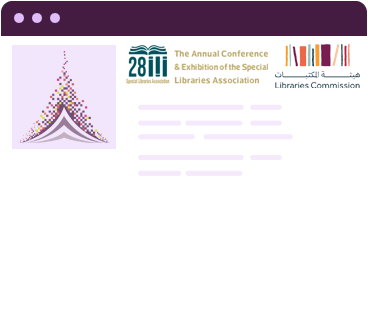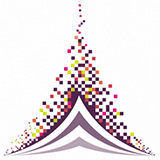About 28th Annual Conference







Emerging technologies, most notably artificial intelligence, are witnessing a change in the paths by which we access information and documents and use, and direct them in the operations and services of libraries, information institutions, and heritage preservation. This is to improve a wide range of operations and services, from collection development, knowledge extraction and reference assistance as well as users engagement to ensuring the sustainability of knowledge and the preservation of culture and human heritage, local, national and global.
The 28th Annual Conference and Exhibition of the Special Libraries Association – Arabian Gulf Chapter (SLA-AGC28), in collaboration with the Saudi Library Commission, is a leading platform to explore the promising potentials and benefits of emerging technologies and smart systems in the field of libraries, information institutions and heritage preservation. This conference aims to bring together specialists in these fields, experts and practitioners; to exchange ideas and share experiences, and develop future visions for the role of artificial intelligence in enhancing and developing the services of libraries, information institutions and heritage preservation.
We look forward to this conference being an opportunity to explore the intersections between artificial intelligence, information institutions, and heritage preservation, and to highlight the latest trends and developments in how these advanced technologies impact the roles and operations of these institutions. It will also explore how these institutions respond to modern technical challenges to enhance their support for their communities, and ensure the sustainability of knowledge and heritage preservation.
Naseej Academy offers two awards, the first for the best research submitted by academics and graduate students, and the second for professionals working in knowledge institutions and facilities. The scientific committee will select the two winning researches from the participating researches and announce them at the conference ceremony.
Abstracts and research papers shall be sent to the Secretary of the Scientific Committee, a cc to the Chairman of the Committee, and a cc to the President of the Association:
E-Mail:asarmih@hotmail.com
Scientific Committee, Chairman
E-Mail: ayman.alhabshi@gmail.com
(Head of SLA-AGC)
E-Mail: ayman.alhabshi@gmail.com